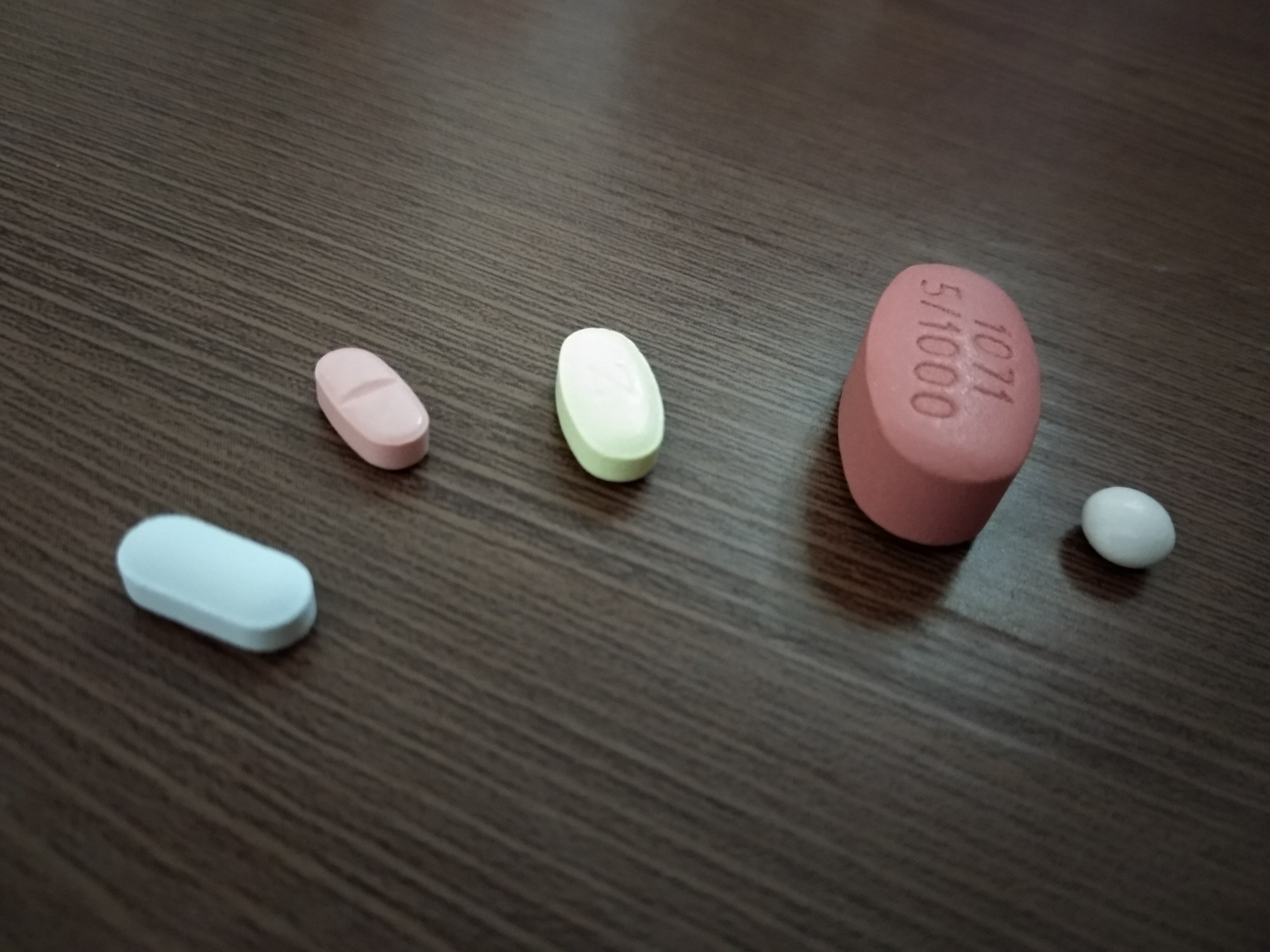I was diagnosed with Type II Diabetes in 2014. I was only 31, and many people couldn’t believe that I developed it young. However, it’s quite common for Malaysians in their teens and twenties to get diagnosed with diabetes. In fact, Malaysia has the highest amount of diabetics in Southeast Asia. About one in five Malaysians suffer from diabetes.
Just so you know, Type II is different from Type I diabetes. Type I develops in childhood, and happens when the body doesn’t produce enough insulin. Type II patients produce enough insulin, but the body’s cells just don’t respond to insulin. The treatments and medication for both are different.
I’ve had it for about four years now, and here’s what I’ve learnt:
1. Not All Medication Works The Same Way For Everyone
There are different classes of Diabetic drugs. Some drugs increase your sensitivity to insulin, some lower the sugar levels in your blood, and some stimulate your pancreas to produce more insulin.
While these may sound like good news to diabetics, it doesn’t always work out. Unfortunately, not all drugs work for everyone. Sometimes, your body rejects the medication and you end up having to use something else.
Don’t get discouraged if your body doesn’t respond to a particular drug. Your doctor will start you off on another drug regimen.
For me, I’ve had to switch my medication combination three times. Each time, I had to go back to the doctor after trying the new drugs for a few months. The doctor had to see if they worked by doing a blood test.
This brings me to my next point,
2. It’s Best to Go Back to The Same Doctor
I go to a GP that I trust. He’s a middle-aged guy, and experienced. It’s good to stick to the same doctor, as he or she will have a record of your medical history and can keep track of your treatment progress.
My doc is quite versatile and open to discussing my treatment with me. He’s the one that recommends different drug combinations, some of which work better than others.
I must stress that I’m still working out a combination so no, I haven’t settled down on one treatment regime just yet. But having one doctor is important so you can work the correct treatment in the shortest time possible. You’ll also avoid having to explain yourself repeatedly. It’s also good to have a doctor that’s aware of the latest drugs and treatment options available.
I’m happy with the drug combination I’m taking now, which treats me for diabetes, high blood pressure, and fatty liver.
3. Diabetes causes a host of other problems.
When you suffer from diabetes, you’re at risk for a whole host of other problems. If left unchecked, you could go into a coma, suffer a heart attack or stroke, or may even have to amputate your feet.
Part of the reason why diabetes is so harmful, is because having high sugar levels in your blood is literally toxic. And when the blood travels to other parts of the body, it wreaks havoc on other organs/systems too.
In my case, I also have fatty liver and high blood pressure, symptoms often associated with diabetics. Having high sugar levels causes the arteries to narrow, which increases blood pressure, a condition also known as diabetic hypertension. If left untreated, this could lead to other blood vessel damage and cause stroke, heart failure, and kidney failure.
In fact, that’s what happened to my mum – she suffered from diabetes too, and she had to take heart medication in addition to her diabetes medication. If you’re suffering from diabetes, please know that it’s serious, and do your best to keep a healthy lifestyle.
I’ve tried to do this by incorporating brisk walking and yoga into my daily schedules, for a minimum of 15 minutes , three times a week.
which goes to my next point,
4. There Will Be Plenty of Side Effects/Symptoms
Once you actually have diabetes, you’ll understand that the symptoms listed on WebMD are just textbook stuff. In reality, different diabetic patients will have different symptoms.
You may even have symptoms that you don’t usually read about, but are still related to diabetes. One example of this for me is sudden confusion and anxiety which happens because of the fluctuating sugar levels in my blood.
So far, these symptoms haven’t incapacitated me yet. However, before I was diagnosed and treated, I’ll have bad migraines and some mornings, and wake up with one or more of my arms numb and tingling. On some days, I’ll break out into cold sweat and feel confused for a few hours.
High sugar levels, if left uncontrolled, can eventually damage nerves, blood vessels and the heart. That’s why it’s important to keep these levels as close to normal as possible.
5. Not Everyone will Understand
Diabetes is an illness that isn’t very visible. You don’t look sick. But you’ll definitely have days where the symptoms get really bad. Maybe it’s dizziness, phantom pain, or a migraine. You may have to miss work and appointments.
Also, be prepared for people who’ll judge you. They may say you’re not committed, or that you’re lazy. I’ve learnt the hard way that it’s best to ignore these people. As long as you make sure you’re a good worker and a good friend, then they don’t matter.
It’s also good to get employers, colleagues, and friends who understand your condition. A demanding person is toxic and will stress you out, making your symptoms worse. This happened when I was working a full-time job. I was sick a lot and couldn’t go to work, so my performance was called into question during a review. I figured that rather than stressing myself out and overworking myself, I would go freelance instead. It gave me more flexibility yet still allows me to be productive.
6. Eating Healthy is Hard to Do (But Necessary)
Every time I read a diabetes related article online, it’s always illustrated with pictures of salads and healthy looking oats dotted with strawberries. It’s not easy to eat like that, especially in Malaysia. Healthy food is expensive and takes time to prepare. Time you just don’t have after coming back from work and being stuck in a jam for two hours.
Many people find it easier to just tapau food from their local mix rice shop or nasi lemak stand. It’s affordable and fast. However, it’s not the healthiest option.
As for me, I’ve tried to cut down my carbohydrates intake as much as I can. I cook at home at least twice a week. I eat Basmati instead of regular rice, which has less starch and sugars.
My advice is to do what you can. You don’t have to switch overnight. Cut down on carbs little by little. If you say no to that extra piece of kuih at tea time, that’s a pretty good achievement by my standards.
Watching my diet is probably the hardest part of my experience. It hasn’t impeded my time out with friends, since more and more eateries are offering healthy or vegetarian options nowadays. Also, having the occasional (once a week or so) sweet treat like an ice cream doesn’t radically change the way I feel physically. It helps that my hubby is a vegetarian, and that he keeps tabs on me and my diet.
Diabetes isn’t debilitating. It just requires extra focus and discipline. Most, if not all diabetics can function pretty normally on a daily basis. It helps if you can manage expectations about yourself too, meaning that if you really can’t do something, please take a break and let your body rest. Your own health should be the number one priority, rather than your public image.
Are you suffering from diabetes as well? How do you manage it? Let us know your story in the comments section below.
More from Real Mental Health
“I Was Scared of Waking Up in Handcuffs,” shares Depressed M’sian on Repealed Law
In 2023, Malaysia repealed Section 309, a colonial-era law that made suicide attempts a crime. The change marked a shift …
‘Everyone Saw A Successful Student While I Was Crumbling,’ Shares 22 Year Old Student
This is a story of a 22 year old woman who shared her story as a Straight A’s student as …
5 Harmful Mental Health Myths Malaysians Still Believe
Let’s break down five of the most common myths Malaysians still believe, and why it’s time to let them go.
















